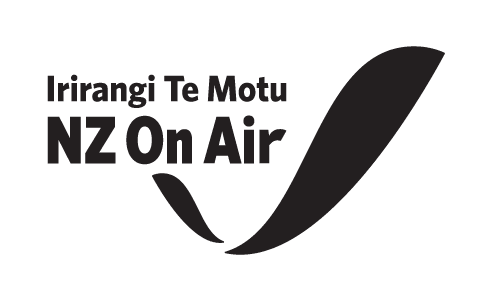Public Interest Journalism funded through NZ On Air
In an attempt to educate the world about spiritual experiences in Māori healing, tohunga (expert) Wiremu Niania has co-written a book with psychiatrist Allister Bush.
Ngā Kūaha: Voices and Visions in Māori Healing and Psychiatry explores what it means to hear voices and see visions from the perspective of a Māori healer. 
Niania defines Ngā Kūaha as providing doorways and entranceways into Māori knowledge about wairua (spirituality) handed down by his ancestors and other Māori sources.
This is the second book Niania, Bush and David Epstein have published together.
Their first was Tatai Hono: Stories of Māori Healing and Psychiatry, which won an Ashton Wylie Book Charitable Trust award in 2014.
The latest book provides historical examples of Western mystical experiences and contrasting Western psychiatric and psychological explanations of voices and visions as hallucinations.
Niania said the book was an attempt to normalise that people do see, feel and hear things.
The book challenges modern psychiatry to explain and say if things are a psychotic episode or spiritual experience.
“Scientifically they can tell what a psychotic episode is, but anything outside of that has to be a spiritual experience,” he said.
Niania said there were risks that came with people not understanding spiritual experiences.
“A risk is that our people continue to be misdiagnosed with mental illness when they’re unaware that it’s possibly a spiritual experience. Now there is a book about it for people to understand. I hope people take away a level of understanding and tolerance after reading the book.”
Niania said the book could reach multiple audiences, but he particularly hoped those in clinical and psychological fields would come to understand more through it.
He also hoped it would help normalise and open up discussions around spiritual experiences that were not solely relegated to religion.
“Doing this mahi makes me feel like we’re stepping back into a time when we knew all these things - before colonisation. It’s not blaming colonisation. It’s ignorance and not understanding or wanting to understand ... it’s about trying to help our European counterparts understand from an indigenous world view.”
Niania was born in 1949 and is of Tuwharetoa, Ngāti Kahungunu and Tūhoe descent. He was adopted into the Niania whānau in Tiniroto, just outside of Gisborne. He was raised by his kuia, Te Awhimate Niania, who noticed that he displayed spiritual awareness from a young age.
She kook him under her wing and helped him understand what was going on.
Beside’s Niania’s spiritual journey, he has a diverse life experiences as a shearer, fencer, scrubcutter, musician, songwriter, Māori activist and youth worker.
In 1999, Niania studied mental health with indigenous training and later joined the Māori cultural therapy team at Gisborne Hospital’s mental health unit.
HIs unique approach to mental health and spiritual distress earned him a role as cultural therapist at Te Whare Mārie specialist Māori mental health service until 2010.
Niania speaks globally on topics such as traditional healing in clinical settings.
In 2019, he and wife Lesley founded a school to develop matekite (heightened intuition) and train mahi wairua practitioners.
Since then, over 3000 people have gone through the school. Over 25 graduated as matanga mahi wairua practitioners in 2022 and another 25 graduated in 2024.
A book launch is being held at Gisborne’s House of Breakthrough church at 6pm on Monday.
Go to shorturl.at/iPJYB to register for the launch.
Matai O’Connor, Ngāti Porou, has been a journalist for five years and Kaupapa Māori reporter at the Gisborne Herald for two years.










